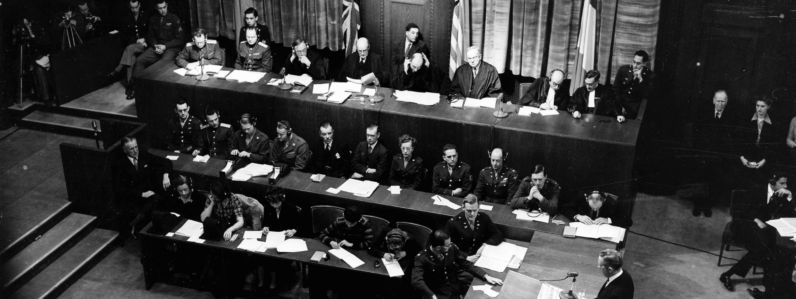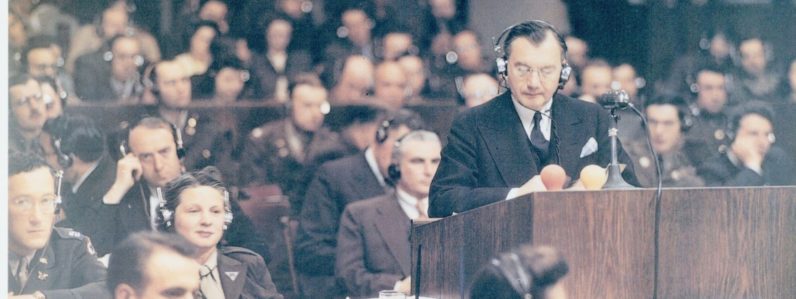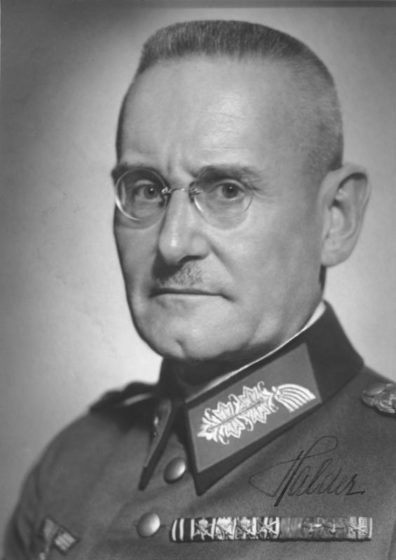
Credit: German Federal Archive
The horrendous acts of Adolf Hitler’s Third Reich leading up to and during WWII have been irreversibly engraved in the collective memory of Americans because, as Robert H. Jackson stated, “…it (humanity) cannot survive their being repeated.” However, despite the well founded condemnation of the Nazi party, not all of Hitler’s chief deputies mindlessly and heedlessly agreed with the evils of the Third Reich. Indeed, a few German officials supported, organized, and attempted the overthrow and assassination of Hitler. Most notably, Chief of the Army General Staff Franz Halder organized a revolt against Hitler in 1938, staged an arrest of the Fuhrer in 1939, and was eventually detained and imprisoned at Dachau concentration camp following his 1944 assassination attempt.
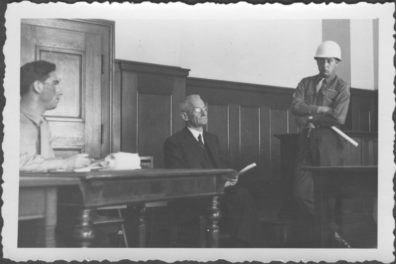
Credit: United States Holocaust Memorial Museum
Franz Halder, the Chief of the Oberkommando des Heeres General Staff in Hitler’s Third Reich Army from 1938-1942 was in the Bavarian Army in the early 20th Century and had a profound devotion to Germany, but he did not have similar loyalties to the Nazi Party. Throughout his time as a high-ranking member of the Third Reich, Halder kept a detailed diary of everything he encountered as Chief of Army General Staff. What is now referred to as the Halder Diary gives an unprecedented look into the intricacies and evils of Hitler’s regime. Through the generosity of Paul Cawein, a local resident of the Chautauqua Institution, the Robert H. Jackson Center was given an original translated version of the diary that was used as evidence at the International Military Tribunal at Nuremberg. The seven volumes of over a thousand pages Halder wrote during his approximately four year tenure in the Nazi Army provide an uncensored look into the military structure of the Third Reich through the eyes of a man who was in constant discord with his Fuhrer.
In July 1946, General Franz Halder testified before Commissioner Ian D. McIlwraith at the IMT Nuremberg commission hearings investigating indicted Nazi organizations.
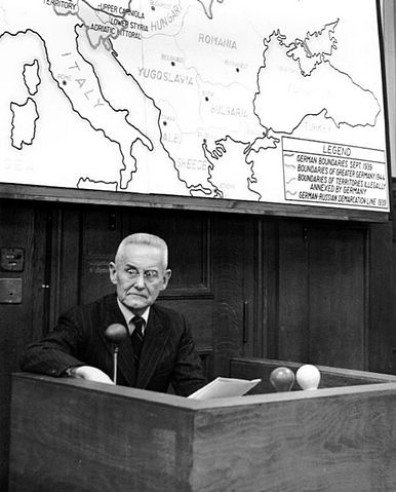
Credit: Public Relations Photo Section, Office Chief of Counsel for War Crimes, Nuernberg, Germany, US Army. Telford Taylor Papers, Arthur W. Diamond Law Library, Columbia University Law School, New York, N.Y
Unlike many other members of Hitler’s deputies of high command, Halder was not put on trial. Rather, upon his release from Dachau concentration camp by Allied forces in 1945, Halder worked closely with the US to carefully construct an accurate military record and history of the Third Reich. Franz Halder’s diary, through close coordination with the US Army, would serve as a paramount piece of evidence in the Allies’ prosecution of Hitler’s high command at the High Command Trial (or, officially, The United States of America vs. Wilhelm von Leeb). The High Command Trial was the last of the twelve trials for war crimes the U.S. authorities held in their occupation zone in Nuremberg after the end of World War II. Indictments in the “High Command Case” were filed on November 28, 1947, and the trial opened February 5, 1948. The closing statement of the Prosecution was made August 10 and the judgment rendered October 27, 1948. Halder would testify at this trial against the high-ranking officials of the Nazi Party.
The diary’s detailed account of Hitler’s acts of aggression, the Nazi’s plans to exterminate the Jewish population in Europe, and Halder’s multiple attempts to stage Hitler’s overthrow provided the Allied prosecution with pivotal evidence needed to convict Hitler’s deputies for their crimes against humanity. For example, diary entries from June 1941 reveal Hitler’s order to round up and detain any Jews that had been living in the areas of the Soviet Union that the Nazi’s had successfully invaded. Also, both on September 27, 1938 and November 5, 1939, Halder recorded his efforts to organize a revolt and arrest of Hitler, but both ultimately failed.
Franz Halder was awarded the US Meritorious Civilian Service Award in 1961 for his contributions and cooperation with the US effort at Nuremburg. The Halder Diaries were officially published in 1976, and since then the diaries have been continually referenced by top historians across the world.





